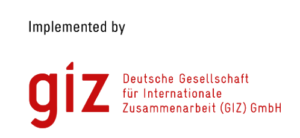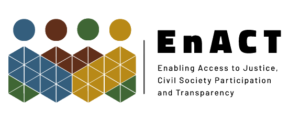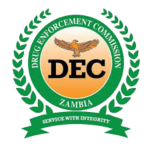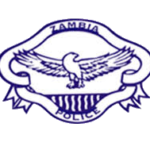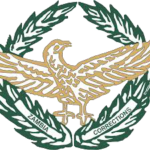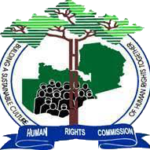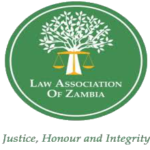Access to Paralegal Training
National Training Scheme for
Paralegals in Zambia

On 1st October 2018, the Government of the Republic of Zambia adopted a National Legal Aid Policy with the objective to ensure efficient and effective delivery of legal aid services to the poor and vulnerable people in Zambia.
The Paralegal Training Scheme
The National Legal Aid Policy creates a framework for non-lawyers to deliver legal aid services in Zambia. This includes paralegals with a requirement that they register at the Legal Aid Board. Paralegals are organised in three categories (level 3, level 2 and level 1 paralegals) whereby qualification requirements match the various levels of specialisation.
In 2016, a Technical Working Group was set up to develop a standardised national training scheme for paralegals in Zambia. It was chaired by the Legal Aid Board and consisted of stakeholders from the paralegal and vocational training sector.
In July 2018, the Technical Education, Vocation and Entrepreneurship Training Authority (TEVETA) officially approved the newly established three-level training scheme for paralegals in Zambia. Together with the adoption of the National Legal Aid Policy, clear training standards, qualifications and mandates are established for paralegals.
Curriculum and Reference Manuals
There are three (3) levels in the Paralegal Training Scheme that qualify for different tasks:
Level 3 | Level 2 | Level 1 | |
1 month (200h) | 5 months (780h) | 11 months (1,620h) + 5 months (780h) attachment | |
Work | Operate at community level townships, in urban areas and villages in rural areas | Usually work at correctional facility & police station desks, or at legal desks at civil society organisations’ main offices & provide legal aid to community members | Work at court, manage Legal Services Units (LSUs, based at subordinate court level) |
Services | Basic legal education, legal information, mediation, orientation & referrals | Legal education, legal information, legal advice, mediation & negotiation, orientation & referrals | Legal education, legal information, legal advice, legal assistance, mediation & negotiation, orientation & referrals |
Entry requirements | Minimum of Grade 9 with a minimum of three passes including a pass in English language and in any other two subjects | Minimum of a General Certificate of Education with a minimum of three passes including a pass in English Language and in any other two subjects | Minimum of a Grade 12 School Certificate with a minimum of five passes including a pass in English Language and in any other four subjects |
The TEVETA-approved documents include training charts, syllabus and job profile for all three levels of paralegals. In addition, training providers developed referenceparalegal training manuals at all three levels. In 2020, training materials at level 2 and 1 of the training scheme were refined to allow for distance learning. All materials can be accessed on line and downloaded using the links below:
Levels in the paralegal training scheme | TEVETA training charts, syllabus and job profile | Reference paralegal training manuals |
Level 1 | Level 1 Training Manual ZEALE | |
Level 2 | ||
For distance learning: link to come soon | ||
Level 3 |
Different university, higher educational institution and civil society organisations have been accredited as training providers with TEVETA. They have been offering paralegal training courses since 2019.
Should your institution / organisation be interested in providing paralegal training, please contact TEVETA to apply for accreditation as training provider: link to come soon
Accomplishments | |
Paralegal trainings | General Accomplishments |
· A standardised national training scheme for paralegals is established · In 2019, 280 new paralegals were trained with the support of PLEED – including 265 paralegals (47 % women) and 15 officers from the Police and Correctional Service · Supporting training material for training providers developed and distributed · Capacities of training providers are strengthened – until December 2020, 10 trainings by 10 providers have been carried out | · Improved recognition of the paralegal profession · Increased competence and professionalism of paralegals · Enhanced quality of paralegal services provided · Trainees based in the provinces or unable to attend a full-time course can now get trained through distance learning |
The development and operationalisation of the national training scheme for paralegals in Zambia received support from the Programme for Legal Empowerment and Enhanced Justice Delivery (PLEED) (2015-2021). This Programme is funded by the European Union and the Federal Republic of Germany, and implemented by Deutsche Gesellschaft für Internationale Zusammenarbeit (GIZ) GmbH, with technical assistance from the Danish Institute for Human Rights.




